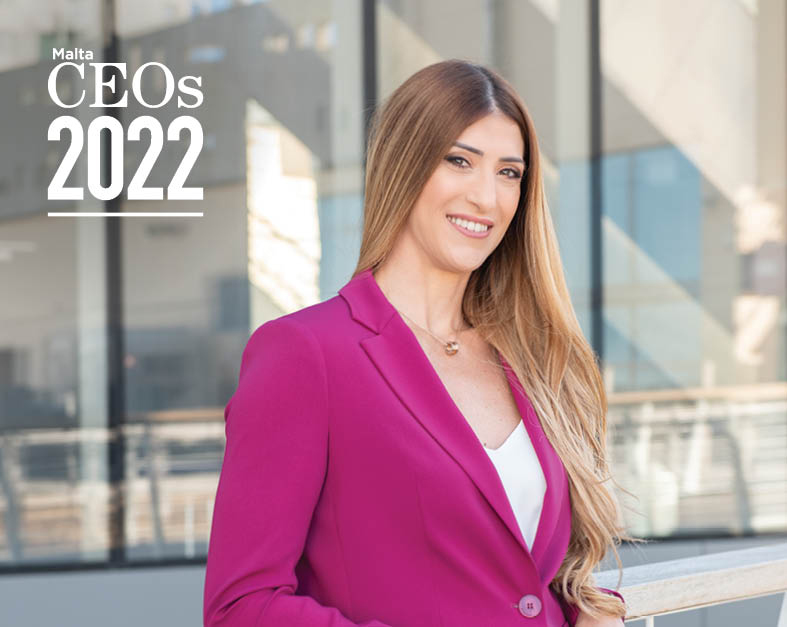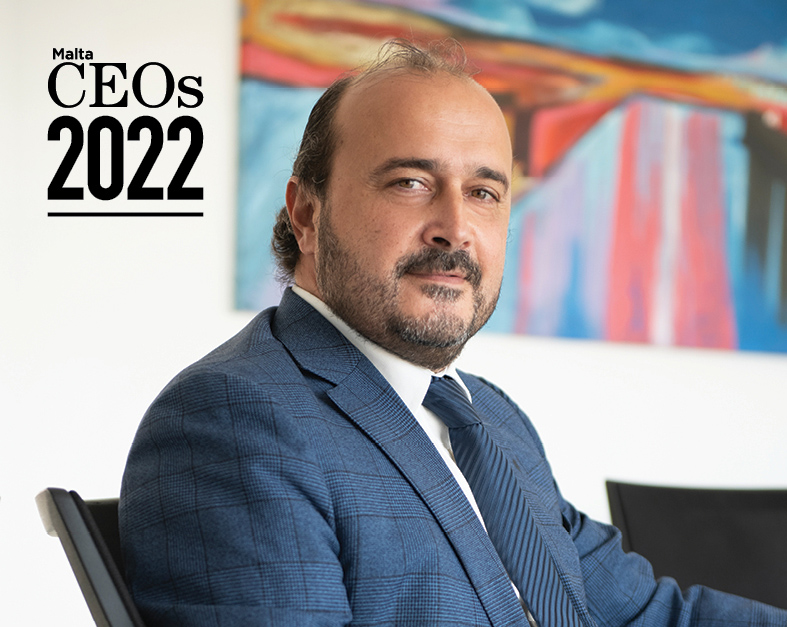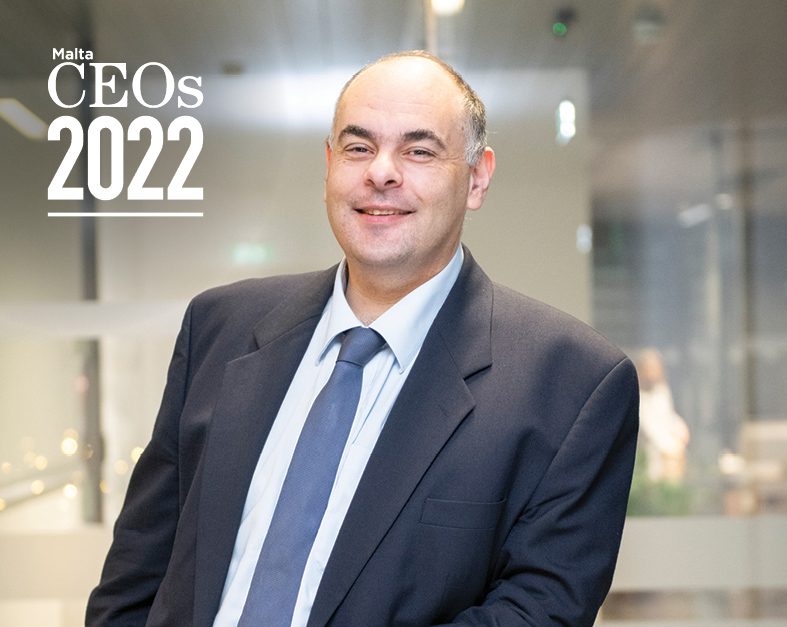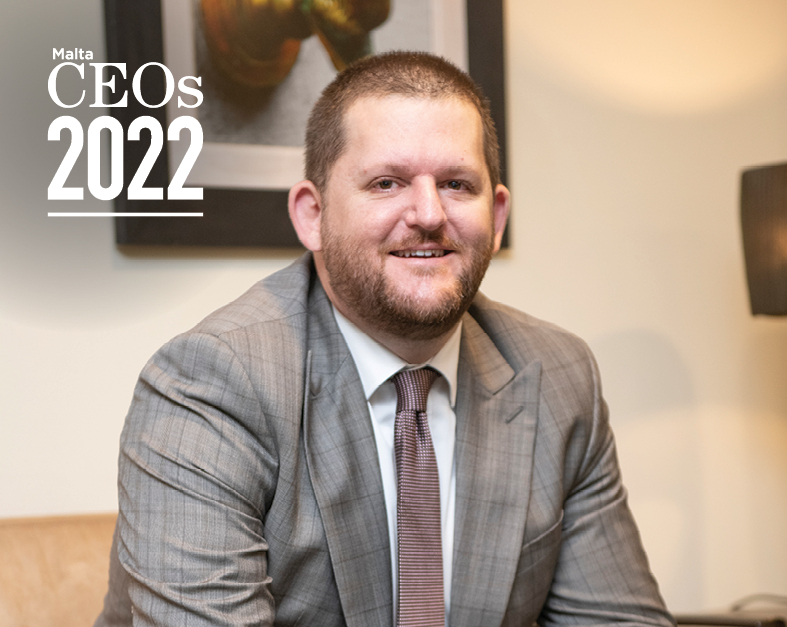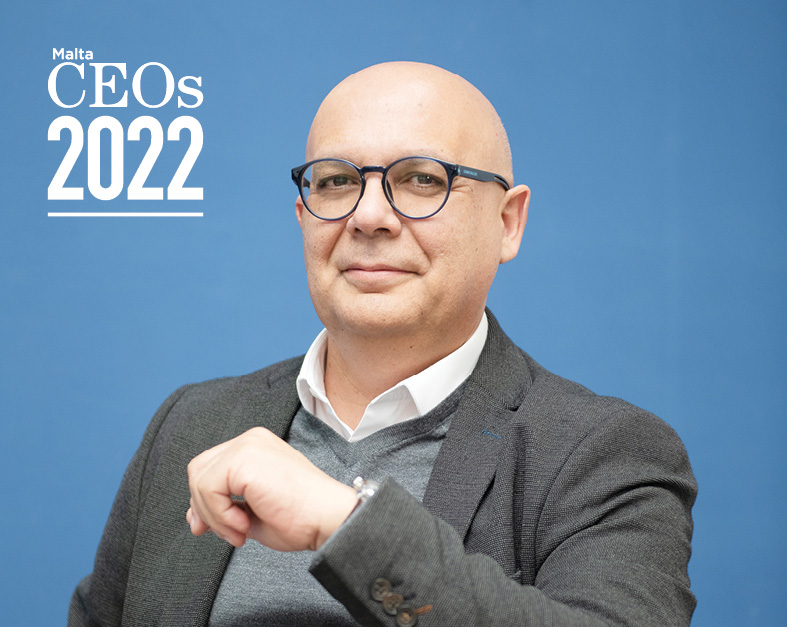Malita Investments, which was originally set up by the government to finance public and private developments, has since grown to include the operations side of these sizeable projects. As CEO, Jennifer Falzon’s role is to effectively lead the company as it takes on more community-focused urban regeneration projects.
When Jennifer Falzon left a telecommunications company to join Malita Investments as an Accounts Manager, she took a leap in the dark. But, a decade later, both her career and Malita itself have thrived.
“I was Malita Investments’ first employee,” she recalls. “At the time, the company was made up of three Board Directors, who knew how Malita would evolve – including its eventual listing on the Stock Exchange. However, on my first day, all I had to work with was a laptop, some sheets of paper, and a pencil. Things have come a long way since then! We have invested in the regeneration of the open-air theatre in Valletta and the construction of the new Parliament Building, among other notable projects.”
As for Jennifer, her ascent to CEO was steady but gradual. She is the first person to hold that title at Malita, and her role requires her to oversee the company’s operations and projects, lead her team, and guide the development of the company’s strategy and goals. And, although the team at Malita’s offices is small, it forms part of a much larger one made up of many professionals who the company outsources to.
Beyond that, as CEO, Jennifer is also the key communicator between the internal and external teams, and with the Board of Directors. “Adjusting to this new role almost felt natural,” she admits. “When the Board decided I was ready to be CEO, I was already fulfilling most of the required duties.

The transition happened in a difficult year, though, and it is a demanding position. But I am very career-oriented and I put all my energy into my role. I believe in leading by example, always.”
So how does someone as successful as Jennifer spend their day and create some sort of balance between a challenging career and private life? “I try to make time for myself, even though my working hours are long. I wake up at 5.15am and, by 6am, I’m at my Crossfit gym,” she smiles. “I then head straight to the office to start my work day by 8.30am. I never miss a workout – not even at the weekend – because it gives me a big boost of energy.”
Once at her desk, Jennifer makes her coffee (which she describes as a daily ritual) and tackles her emails. “We have come to expect answers instantly and I am often contacted via instant message at all hours, which makes it hard to separate my home life from work. However, that hour at the gym is sacred and the only time during my work week when I ignore my phone.”
Unsurprisingly, Jennifer is highly organised and plans her day in detail. “I try to anticipate what I need to be doing at any given time, but impromptu situations do arise that need to be tackled, so I adapt,” she admits.
Thinking back on her career, Jennifer explains her first love was IT – although she later made her name in the financial services sector. “I originally studied mathematics and IT but diverted when I discovered accounting and fell in love with it,” she shares. “Even though I have always been an accountant, I still love technology and it shows in my obsession with gadgets and automation.”
Malita, meanwhile, was originally set up by the Government to seek funds and to finance public and private projects. “Eventually, we started shifting from financing to operations. Then, in 2017, we took on an affordable housing project that consists of 780 units spread over 16 sites, and which we will also be managing,” Jennifer shares. “This project came about at a time when Malta was experiencing a demographic shift, which in turn affected the economy and resulted in a significant increase in the purchasing and leasing price of residential units. Developers were mostly interested in building high- end apartments but those remained out of reach for many. So, for this project, we proposed using Government-owned land that could only be used for social purposes.”

Similarly, another project that Malita is currently working on involves urban regeneration with a green approach.
“We should be launching the pilot project next year. I am excited about it because the environment and sustainability are very important to me,” says Jennifer, who drives an electric car. “In fact, we are installing as many solar panels as we can in the affordable housing project too, and we are taking special care to include outdoor spaces that can be enjoyed by the residents.”
The need for a sustainable approach and an appreciation for the outdoors are topics that Jennifer references frequently. “I am glad that the construction sector is starting to think more sustainably,” she says. “I think that the COVID-19 pandemic taught us many lessons, one of which is how important nature is to people. Another issue is the need to invest more in skilled people. Unfortunately, we’re diverting people to professional careers like law and medicine but have forgotten skilled work. It’s a problem we encounter in the construction industry, where we are finding very few people under a certain age who are skilled in working with Maltese stone. Nobody wants to be a builder, a carpenter, or do other skilled jobs anymore.”
And although the pandemic created a shortage in construction workers, affected the supply chain and drove up prices, Jennifer feels that more good than bad came out of it. “The general acceptance of remote and flexible working is a move in the right direction,” she says. “I prefer working from the office but I don’t see why employees who feel more productive at home shouldn’t work remotely when possible. I am also very pleased with the shift towards using less paper, even though it’s a constant struggle to get some departments and banks to embrace the online signing of documents. We receive many contracts that need to be signed and using electronic signatures has saved not only on the amount of paper used but on precious time too.”
For Jennifer, however, the most positive outcome of the pandemic was a greater awareness of mental health. “I think we should really focus on mental health support,” she says. “I don’t think we give it enough importance. In my opinion, workplaces should offer free in-house mental health support, or pay for it if an employee needs to seek it elsewhere.”

Going forward, Jennifer predicts that things will continue to change. “I hope that, like we are doing at Malita, the construction industry will focus more on a cleaner environment. There has been a shift in people’s needs – which now include outdoor spaces and green energy – and those needs have to be addressed.”
Finally, Jennifer also hopes to see a more inclusive society emerge – where everyone is given the opportunity to thrive. “It’s so rare to hear someone talk excitedly about their job,” she says. “We need to put people on a path that is right for them.” As for this young CEO, there is no doubt that the path she is on is perfect for her.
This article is part of the serialisation of 50 interviews featured in MaltaCEOs 2022 – an annual high-end publication bringing together some of the country’s most influential business leaders.
‘Networking is everything in our line of work’ – WES Trade CEO Alessio Bucaioni
MaltaCEOs 2022 serialisation: For seven years, WES Trade has helped an expansive range of clients internationalise their products and services.
‘Something can appear out of the blue and change everything’ – CEO Joseph Attard
MaltaCEOs 2022 serialisation: Unsurprisingly, given his technical background, Joseph’s approach is very hands-on.
‘Our key people help us provide the quality of service we expect’ – RiskCap CEO
MaltaCEOs 2022 serialisation: CEO Paul Magro counts building successful teams and opening an office in London among his achievement.
‘We’re the fourth busiest port in the Mediterranean’ – Malta Freeport Corporation CEO
MaltaCEOs 2022 serialisation: CEO David Magro is keenly aware of the responsibility his position carries.


